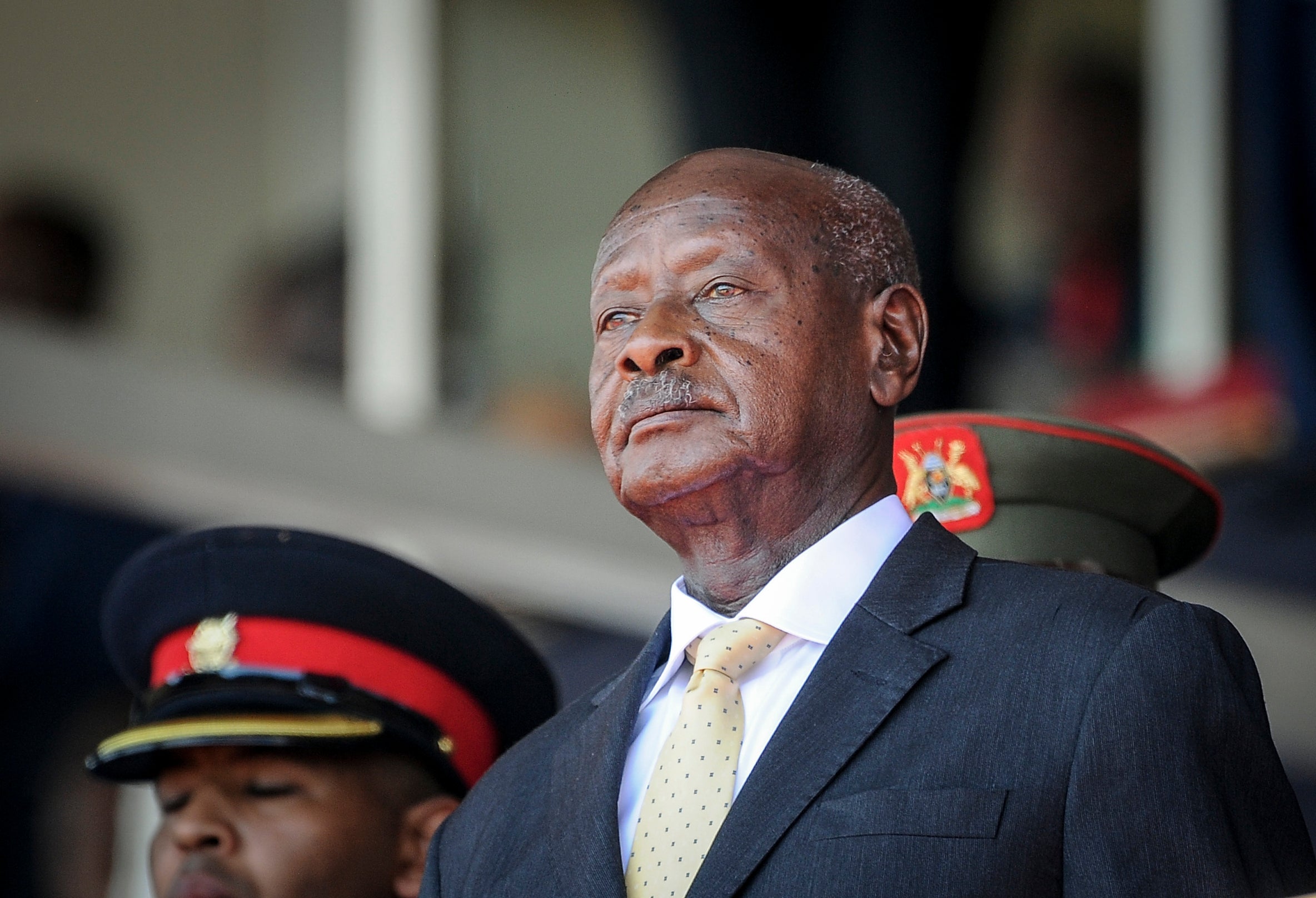UN closes its human rights office in Uganda as government ends an agreement allowing it to operate
The United Nations' human rights chief says his office in Uganda will close this weekend after the East African country decided not to renew an agreement allowing it to operate

Your support helps us to tell the story
From reproductive rights to climate change to Big Tech, The Independent is on the ground when the story is developing. Whether it's investigating the financials of Elon Musk's pro-Trump PAC or producing our latest documentary, 'The A Word', which shines a light on the American women fighting for reproductive rights, we know how important it is to parse out the facts from the messaging.
At such a critical moment in US history, we need reporters on the ground. Your donation allows us to keep sending journalists to speak to both sides of the story.
The Independent is trusted by Americans across the entire political spectrum. And unlike many other quality news outlets, we choose not to lock Americans out of our reporting and analysis with paywalls. We believe quality journalism should be available to everyone, paid for by those who can afford it.
Your support makes all the difference.The United Nations' human rights office in Uganda will close this weekend after the East African country decided not to renew an agreement allowing it to operate, the U.N.'s top human rights official said Friday.
The closure comes amid concern over human rights violations including extrajudicial killings in Uganda and a new law that prescribes the death penalty for some homosexual acts. The office in Kampala will formally cease operations on Saturday, while sub-offices in Gulu and Moroto closed at the end of June and on Monday respectively.
“I regret that our office in Uganda had to close after 18 years, during which we were able to work closely with civil society, people from various walks of life in Uganda, as well as engaging with state institutions for the promotion and protection of the human rights of all Ugandans,” U.N. High Commissioner for Human Rights Volker Türk said in a statement from Geneva.
The closure was prompted by the government's decision not to renew the host country agreement under which the office operated.
Türk expressed concern about the situation in Uganda ahead of elections in 2026, given an “increasingly hostile environment” for human rights defenders, journalists and others, his office said. He noted that most of the 54 non-governmental organizations that were “arbitrarily suspended” two years ago are still closed.
He also warned Uganda against backsliding from its commitments under human rights treaties, including with the “deeply discriminatory and harmful anti-homosexuality law, that is already having a negative impact on Ugandans,” his office said.
Last week, a panel of U.N. experts urged Uganda to repeal that law, which has prompted intense international criticism but has wide support at home, in a report that expressed wider concerns over the human rights situation.
Uganda’s security forces face growing allegations of brutality in their encounters with perceived opponents of the government of President Yoweri Museveni, a U.S. ally who has held power since 1986.
Türk called on authorities to ensure that the national human rights body, the Uganda Human Rights Commission, can function effectively. He said it “is chronically under-funded and under-staffed, and reports of political interference in its mandate undermine its legitimacy, independence and impartiality.”